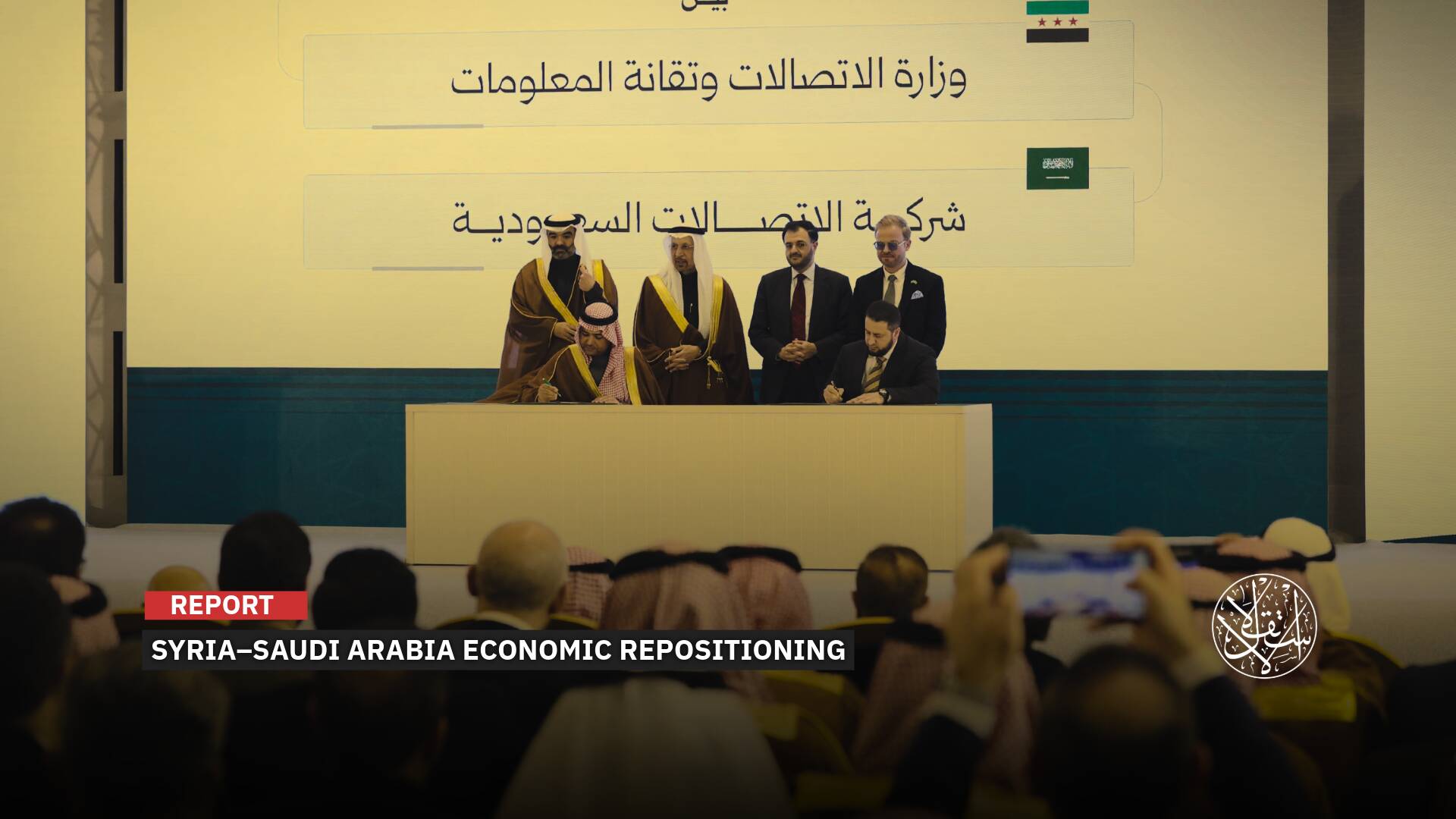U.S. Power Play: Defending ‘Israel’ and Threatening the ICC

Most European governments supported the International Criminal Court in ‘The Hague.’
Could the United States militarily invade the Netherlands and storm the International Criminal Court (ICC) headquarters if Israeli Prime Minister Benjamin Netanyahu were arrested to prevent his prosecution?
There is an American law that allows for such an action, the ‘Hague Invasion Act’ suggesting that Washington may be willing to go to extreme lengths, even clashing with International Justice– possibly militarily – in defense of the occupation state and its leaders, and to punish the court’s judges.
In addition to the law, the U.S. has repeatedly acted against the UN-affiliated court, proposing measures to punish its judges.
This reveals the Western double standards in their approach to justice, showing it as a “political tool” rather than an “ethical principle.”
Amidst this contradiction, the U.S. has passed laws designed to penalize judges of an International Institution because its rulings did not align with American interests, while at the same time, it has welcomed similar rulings from the same court when they targeted Russia, Sudan, and its adversaries.

The ‘Hague Invasion Act’
The discussion around this law resurfaced after the International Criminal Court (ICC) issued an arrest warrant for Israeli Prime Minister Benjamin Netanyahu and his former defense minister Yoav Gallant, accusing them of war crimes committed in Gaza.
The law, known as the American Service Members’ Protection Act and colloquially referred to as the ‘Hague Invasion Act’ was enacted in 2002 and signed by then-President George W. Bush.
It was introduced by members of Congress in the same year the ICC began its operations, driven by fears that U.S. soldiers and military officials could be prosecuted for war crimes committed in Iraq, Afghanistan, and elsewhere.
At the time, lawmakers argued that the Rome Statute, which established the ICC, posed a risk of potentially prosecuting the U.S. president and other high-ranking government officials.
They argued that high-ranking U.S. officials could face criminal prosecution for national security decisions involving issues like responding to “acts of terrorism, preventing the spread of weapons of mass destruction, and deterring aggression.”
Under this law, the U.S. president is granted "the authority to use all necessary means" to secure the release of any American or allied personnel (such as Netanyahu) detained or imprisoned by the International Criminal Court.
This law implicitly allows for any action, even a military invasion of the court’s headquarters in ‘The Hague,’ should the ICC attempt to prosecute any U.S. or allied political or military figures.
"While no president has yet made good on this military threat, it serves as shorthand for the U.S. relationship to the international institution of justice," noted The Intercept on November 21, 2024.
The site further explained that "the law’s purpose is to prevent the prosecution of U.S. forces for atrocities committed during the War on Terror."
However, America's fear of ‘The Hague’ is deeply rooted in its long-standing policy of unconditional support for “Israel.”
Twelve U.S. senators previously wrote a warning letter to International Criminal Court prosecutor Karim Khan, stating, "Our country demonstrated in the American Service-Members' Protection Act the lengths to which we will go to protect that sovereignty," according to Middle East Eye on May 27, 2024.
“We will interpret this not only as a threat to Israel’s sovereignty but to the sovereignty of the United States,” said the senators if an arrest warrant is issued against Israeli leadership.
A report from Middle East Monitor on May 23, 2024, clarified that "the U.S. president is authorized to invade ‘The Hague’ if any Israeli is held by the ICC."
Richard Goldberg, a researcher at the Foundation for Defense of Democracies and a former National Security Council official, explained that the U.S. anger and concern over the prosecution of Israeli leaders stem from the fear that Washington could be the next target of the court.

Reprimand and Threat
One of the contradictions in the Western approach to the International Criminal Court's decisions against Israeli or Western officials is their view of the court as an institution designed to punish "undemocratic" opponents, from their perspective.
The Telegraph encapsulated this peculiar notion in its editorial on November 22, 2024, claiming that "democratic nations have a right to wage war in their own defence."
The article posed the question of "Would the ICC have accused Churchill of war crimes ?" This was used as justification for Netanyahu's destruction of Gaza, framed as a victory over enemies.
By this logic, the report implied that Palestinians, Arabs, and Muslims have no right to defend themselves or their land because they are considered "undemocratic," and any attempt to do so is labeled "terrorism."
This explains the reports that have surfaced since May 2024 regarding the introduction of U.S. legislation aimed at punishing the International Criminal Court (ICC) for daring to label the leaders of "democratic Israel" as war criminals, shortly after the ICC began considering arrest warrants for Netanyahu and other Israeli officials.
In response to the investigation, the U.S. House of Representatives passed a bill on June 5, 2024, aimed at penalizing the ICC.
“The vote passed 247 to 155, with all 205 voting Republicans backing the measure alongside 42 Democrats”, according to the Times of Israel.
The bill, introduced by the House, sought to impose comprehensive economic sanctions and visa restrictions on individuals and judges associated with the ICC, including their family members.
This vote marked the first legislative rebuke of the war crimes court from Congress following its decision in May 2024 to pursue arrest warrants for Israeli leaders, though the Senate did not approve it.
Over the six months leading up to the court’s decision, the U.S. government exerted significant pressure on the ICC and threatened its staff.
However, when the ICC issued arrest warrants for former Sudanese President Omar al-Bashir in 2009 and 2010 on charges of genocide, the U.S. called for respect for the court’s decisions and for Sudan to comply.
Similarly, following the ICC's 2023 warrants against Russian President Vladimir Putin and Defense Minister Sergei Shoigu, the U.S. praised the decision as a "strong point for the court" and expressed support.
Yet, when the ICC issued arrest warrants for Netanyahu and his defense minister, Yoav Gallant, on charges of genocide and war crimes in Gaza, the U.S. condemned the move as "outrageous."
A wave of threats against the court and its judges followed, with members of Congress proposing punitive measures.
Immediately after the ICC’s decisions against “Israel,” Mike Waltz, National Security Advisor to President-elect Donald Trump, warned the court of a strong response, vowing to take action against what he described as the institution’s “anti-Semitic bias.”
“Waltz's response to the arrest warrants offered a glimpse of the hostile approach the incoming Trump administration and the Republican Congress intend to take toward international efforts to hold the Israeli government to account for war crimes committed in the Gaza Strip—many of which have been carried out with U.S. weaponry,” analysts noted in the Common Dreams.
The Telegraph reported on November 22, 2024, that Trump is considering imposing sanctions on the International Criminal Court (ICC) and its president, Karim Khan, following the issuance of an arrest warrant for Israeli Prime Minister Benjamin Netanyahu.
The report further explained that any U.S. sanctions against Khan—who is British—could strain relations between Britain and the Trump administration, especially if the UK chooses to comply with the arrest warrants.
U.S. Republican Senator Lindsey Graham has confirmed that he will push for legislation to punish countries that abide by ICC arrest orders against Israeli leaders.
Graham stated on X that it is time for the U.S. Senate to act and impose sanctions on this irresponsible body," while calling for an investigation into the ICC prosecutor.
He described the court as a rogue organization with political motives that tramples on the very concept of the rule of law.
In an interview on the right-wing American network Fox News, he warned, “To any ally—Canada, Britain, Germany, France, if you try to help the ICC, we're going to sanction you.”
He confirmed that he would work with Senator Tom Cotton to pass legislation to punish any country that helps or encourages the arrest of any Israeli politician, as soon as possible.
Double Standards
It is curious that Lindsey Graham supported the arrest warrant issued by the International Criminal Court (ICC) against Vladimir Putin.
In a statement on March 17, 2023, he described the decision as "a justified, giant step in the right direction for the international community."
This was echoed by his colleague, Senator Jim Risch, a senior Republican member of the Senate Foreign Relations Committee, who called the arrest warrants for Netanyahu and Gallant a "complete disgrace," claiming that "Israel is not within the jurisdiction of the ICC."
"The U.S. must move forward with sanctions against this corrupt organization," Senator Risch noted.
However, much like Graham, Risch only praised the ICC when it issued an arrest warrant against Putin in 2023.
In a statement at the time, Risch condemned Putin's nefarious role in the deportation of hundreds of thousands of Ukrainians to Russia, especially children, without batting an eye at Israel’s killing of thousands of children in Gaza.
Senator Tim Scott, also from the Senate Foreign Relations Committee, accused the court of functioning as an "anti-Israel propaganda machine" and allying with America's adversaries.
"The court’s illegitimate targeting of Israel for defending its people from terror should not be tolerated and should be met with immediate and severe sanctions," Senator Scott said in a statement.
In September 2020, the Trump administration had already imposed sanctions on former ICC prosecutor Fatou Bensouda and another senior prosecutor for investigating “Israel” and U.S. war crimes in Afghanistan.

The sanctions were issued under an executive order signed by Donald Trump on June 11, 2020, which allowed for the freezing of assets, entry bans, and restrictions on visa issuance for International Criminal Court officials due to their investigation into American personnel.
However, the current administration under President Joe Biden reversed Trump's punitive measures with another executive order on April 2, 2021, lifting the ban on ICC judges and their families.
The White House also opposed the legislation, describing it as an overreach, with Democratic lawmakers labeling it "excessively broad."
They warned that it could trap Americans and U.S. companies involved in significant work with the court, and could hinder actions the U.S. had supported, such as the arrest warrant against Putin.
Yet, Senator John Thune, who is set to become the majority leader in the Senate should Trump return to the presidency, has pledged to punish the ICC.
Thune stated on X, “If the ICC and its prosecutor do not reverse their outrageous and unlawful actions to pursue arrest warrants against Israeli officials, the Senate should immediately pass sanctions legislation.”
“The Senate Republican majority will stand with our key ally Israel and make this – and other supportive legislation – a top priority in the next Congress,” He added.
Despite not being a member, the United States has repeatedly expressed its willingness to cooperate with the International Criminal Court (ICC) if it targets Washington's adversaries.
However, it has rejected any cooperation regarding war crimes committed by American or Israeli soldiers.
This was echoed by Senator Lindsey Graham, who warned in May 2024, “If they do this to Israel, we will be next!”

Trump Administration
Following the ICC rulings, Israeli newspapers swiftly questioned what the newly elected U.S. President, Donald Trump, would do for “Israel” and how he would rescue it from its predicament.
Haaretz reported on November 21, 2024, that "Netanyahu hopes Trump will save him from this ordeal by imposing sanctions on the court, its judges, and its prosecutors."
However, Haaretz acknowledged that “Israel’s” problem, and that of every Israeli citizen, lies in "the horrific actions carried out by their government and military in Gaza—mass killings, expulsions, and destruction—which are disproportionate to the response to Hamas's [Operation al-Aqsa Flood]."
Foreign analysts and media outlets have suggested that the ICC’s decision presents a challenge and embarrassment for the incoming Trump administration, should it follow through on its threats, as Congress members have long planned, to sanction the court. Such a move would place the administration in a legal and ethical bind.
Yale Law School professor Oona Hathaway described any U.S. sanctions against the ICC following its ruling on Netanyahu and Gallant as "sending a clear message that the United States' commitment to international justice is not principled but purely political (self-interested)."
She told The Washington Post that America's criticism of the ICC warrants exposes a double standard and urged the Biden administration to pressure “Israel” to open its own investigations into its military's conduct in the war, rather than directing its ire at the court.
On May 24, 2024, Hathaway wrote in Foreign Affairs after ICC Prosecutor Karim Khan sought arrest warrants, noting the Biden administration's disregard for accusations of forced starvation, despite internal assessments from U.S. agencies suggesting “Israel” was deliberately obstructing food access.
On the U.S. clash with the ICC, international law expert Michael Lynk, who served as the UN Special Rapporteur on human rights in the occupied Palestinian territories, told The Intercept"I think we’re heading for a significant showdown on international law between the United States and the rest of the world."
“I think this is going to open up an even wider breach between the U.S. on the one hand, in international law, and most of the rest of the world on the other.”
British writer and editor of Middle East Eye David Hearst also accused the U.S. of being complicit in the crimes of the occupation.
“One passage in the ICC judgment makes US responsibility for the carnage that has taken place in Gaza brutally clear,” Hearst noted.
The ruling pointed to “Israel’s” disregard for calls from the UN Security Council, the UN Secretary-General, governmental organizations, and civil society regarding the humanitarian situation in Gaza.
It also highlighted “Israel’s” response solely to U.S. pressure and requests, making Washington an accomplice in Netanyahu’s crimes, especially as it protected those crimes with its veto.
Hearst said, “What the US has come to represent is the law of the jungle, where right and wrong are malleable, the playthings of the powerful.”
According to the Middle East Eye, Raed Jarrar, Dawn’s Advocacy Director said in a statement that “in light of the ICC's issuance of arrest warrants for Netanyahu and Gallant, US officials could be personally liable under international law by continuing to provide Israel with military assistance.”
The U.S.-based human rights organization Democracy for the Arab World Now (DAWN) highlighted that the ruling’s implications are a condemnation of America.
“Article 25(3)(c) of the Rome Statute outlines clear criminal liability for aiding and abetting war crimes, which applies to individuals in non-member states like the U.S,” Jarrar added.
“By continuing to provide military assistance to Israeli officials, including Prime Minister Netanyahu, despite credible accusations of war crimes by the ICC, U.S. leaders – including President Biden, Secretary Blinken, and Secretary Austin – are exposing themselves to personal liability under international law,” said Jarrar.
DAWN further explained that the ruling represents a significant challenge to all European countries that have formed the backbone of support for “Israel’s” war on Gaza’s population, continuously using their veto power to block calls for an immediate ceasefire.
The majority of European governments expressed support for the ICC in ‘The Hague’ following its decision.
European Union foreign policy chief Josep Borrell confirmed that the ruling was "not political" and must be respected, according to the Jewish Chronicle on November 24, 2024.
However, the far-right regimes in Hungary and Argentina supported U.S. attacks on the ICC, with Germany stating it would not comply with the court's order.
Hungarian far-right leader Viktor Orban, a staunch ally of “Israel” and an opponent of Muslims, also criticized the ICC, according to Geopolitical Economic on November 24, 2024.
Sources
- War Crimes Have Never Stopped the U.S. Before.
- Would the ICC have accused Churchill of war crimes?
- Trump could sanction British lawyer leading ICC push for Netanyahu arrest
- ICC arrest warrants: The US must distance itself from an increasingly toxic Israel
- Graham knocks ICC over Netanyahu, Gallant: ‘A dangerous joke’
- ICC warrants put spotlight on Israel and its U.S. defenders
- Trump targets ICC with sanctions after court opens war crimes investigation
- US House passes bill to sanction ICC for seeking Israel arrests warrants
- Don’t Go to War With the ICC
- The ICC Just Issued Netanyahu's Arrest Warrant. He is counting on Trump to Save Him










